#ethical analysis
Text
LET'S TALK ABOUT ZECORA!!!!!!!!!!
So we all know that the season 1 episode 9 of My Little Pony is the one where the ponies first meet Zecora, a mysterious Zebra that the whole of Ponyville finds frightening. I'm sure many of you are aware that it's a blatant allegory for racism, and for a children's show it does EXTREMELY well. It shows how fear of the unknown is such an extreme part of the human brain, as well as describing how this fear can be dangerous and even fatal. When the episode begins, five of the Mane 6 are already decided on their stance against Zecora, so when Twilight (who's more educated on the subject, and therefore more open to suggestion/changing of opinions) enters the scene, she's immediately bombarded with information from her most trusted friends about how evil Zecora is. She's skeptical at first, and tries to convince the others of her standpoint, but as the episode moves on, her opinion changes -due to miscommunication- to match that of her friend's. When the Mane 6 finally take a moment and actually talk to Zecora, they find out that she's been trying to help them throughout the entire episode, and due to their fear, they heard and understood none of what she was trying to say. The whole episode goes on a deep dive in explaining fear of the unknown, the connection between knowledge and judgement, and even how children are often significantly more open to change and new standpoints (E.G. how Applebloom is the first character to actually reach out to Zecora and find out who she really is). My point is, if a children's TV show created 14 years ago can do such an educated and intelligent analysis on racism (and bigotry in general) and still make it easy to understand for little kids, then we could ALL be doing better. We SHOULD all be doing better. Do better.
#to be cringe is to be free#ethical analysis#character analysis#media analysis#racism#zecora#my little pony#my little pony friendship is magic#twilight sparkle#apple bloom#friendship is magic#racism in media#racial equality#free palestine#free gaza
12 notes
·
View notes
Text

Mainstream media finally reports on Gaza famine but won’t admit Israel is deliberately responsible
Palestinians in Gaza are starving, but the mainstream media won’t tell you the simple truth that Israel is intentionally causing the famine.
[link]
#free gaza#israel#gaza strip#israel is a terrorist state#gazaunderattack#gaza#free palestine#palestine#jerusalem#genocide#news#world news#breaking news#latest news#palestine news#war on gaza#war news#news update#palestinian doctors#support palestine#famine#war crimes#al shifa hospital#humanitarian crisis#media analysis#social media#mixed media#media#society#ethics
188 notes
·
View notes
Text
I'm chewing on this and my thoughts aren't fully formulated yet but i have been having Thinking about and jgy and his definitions of harm and his moral framework and generally he seems to very much come down on the side of consequentialism- what with him considering himself as having "murdered" qin su when her death was unambiguously a suicide. But she killed herself because of things he did, so even if he never wanted her to die or took actions toward that, he considers himself as having killed her.
And yet every single time he is confronted about his actions, he is incredibly quick to emphasize that he had no choice, he didn't really want to, there was just no other way out. It's a complete 180 from the motive not mattering at all to it mattering a LOT.
And that has led me to me believe that when he's talking about his lack of choices he's- the uncharitable might call it lying for sympathy, but that's not it, jin guangyao does sincerely believe he had no other choice (except, as nmj so nicely put it, sacrificing himself) but he's also not defending himself with full sincerity. It's more that his motive doesn't really matter much to him as a matter of morality, but he knows it matters to other people. He is not genuinely defending himself and arguing he doesn't deserve blame, he is arguing he shouldn't be punished. There seems to be a very strict barrier in his mind between accountability in the moral sense (what does he hold blame for) and in accountability in the practical sense (What punishment should he get.)
Which makes perfect sense for a guy who is well aware that the justice system will never actually be just for him. That any punishment levied toards him within the legal and politcal system he lives in will primarily be because of who he is and who his mother was and not because of what he actually did. Yes he thinks what he did was wrong yes he thinks that is morally repugnant no he shouldn't get punished for it.
And well. I don't agree that people should just get away with mass murder because the judicial system sucks but... is he wrong? I mean, what did him in at the end? Payment for his actual crimes? No. It was a lie that was believed just because he was the one being accused.
#mdzs#meng yao#jin guangyao#mdzs meta#or in the process or becoming meta i suppose#i am quite literally reading academic papers about the moral arguments for and against duress as a legal defense for murder rn#just to make an ethical analysis about this little guy that goes further than the usual 'is this character evil' discourse#and like. examine morality without judgement on whether you should like a character#which is sorely lacking on this hellshite
232 notes
·
View notes
Note
on: "there is no ethical consumption under capitalism," would you agree to the corollary that: "and there CAN be no ethical consumption under capitalism" or is there some meliorist path towards ethical consumption under capitalism
As a social democrat, I'm very much a believer in "meliorist" solutions and deeply skeptical of the undistributed middle. It is a matter of historical fact that capitalism can function in a number of ethical "registers," and anyone who tells you otherwise is trying to sucker you into pseudo-revolutionary defeatism.
There is a real difference between completely unrestrained dark Satanic mills powered by child labor and slave cotton and a fully-realized social democratic mixed economy, complete with tripartite bargaining and co-determination, economic planning organized through a jobs state and decommodified/nationalized economic sectors including a social democratic welfare state, and a robust regulatory state that can enforce safety and environmental and labor standards at home and abroad - and there are many different points along that spectrum.
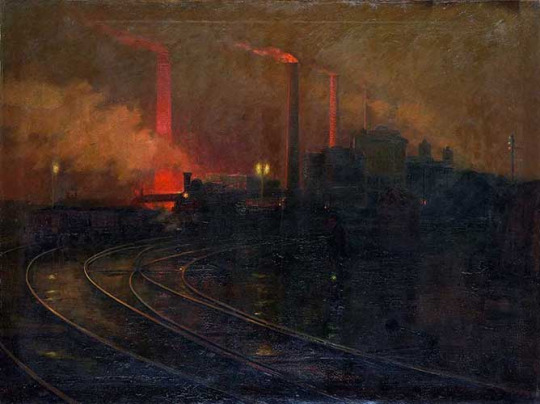
My main critique of the whole "ethical consumption under capitalism" thing is that the variant of it that stresses individual consumer behavior is a total fantasy.
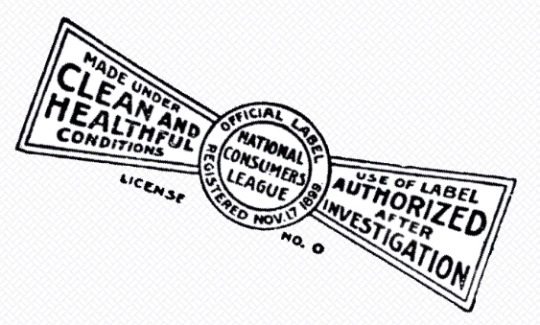
It is simply impossible to exert pressure on capitalist systems on your own, or even through ad hoc or single-issue boycott efforts. You need social movements like the National Consumers League that combine mass mobilization with permanent infrastructure, those movements need to be in coalition with the labor movement and civil rights movements, all of them need a regulatory state with the capacity to enforce its will on corporations - and that state needs them as countervailing forces against corporate lobbyists.
youtube
#history#historical analysis#economic policy#political economy#regulation#regulatory state#ethical consumption under capitalism#economic history#social democracy#mixed economy#co-determination#boycotts
60 notes
·
View notes
Text
He shouldn't have done that with his badge. It wasn't like the old days. He had responsibilities. He should've stayed on and made things just a little less--
No. That never worked.
Terry Pratchett, Jingo
#samuel vimes#sam vimes#jingo#discworld#terry pratchett#the watch#responsibility#quitting#dilemmas#cost analysis#ethics#change#systemic problems#that never works
187 notes
·
View notes
Text
There Is No Such Thing As Justice With Chainsaw Man
正義の味方: the Ally of Justice. This is a concept that runs through Japanese hero stories, from cop dramas to Kamen Rider and now to Chainsaw Man. It begins in 1958 with the mysterious figure of Moonlight Mask.

Moonlight Mask (月光仮面) is Japan’s first Superhero Tokusatsu (practical effects based film such as Ultraman, Kamen Rider, Godzilla, etc.) The series follows a simple formula, one of the “Skull Masks,” a group of international spies that wears well…skull masks, will be running some evil scheme in their effort to acquire the “Joe-engine Bomb,” a secret weapon developed by Japanese scientists.
When the Skull Masks’ villainous ways put innocents in danger, there appears the masked man, Ally of Justice, Moonlight Mask, riding on his motorcycle, with automatic pistol in hand. He only shoots to disarm, never to kill, forgives his enemies and never takes a life. He uses his superhuman (?) strength to protect the weak.
One interesting aspect of Moonlight Mask is that no one, not even the audience, has the hero’s hidden identity confirmed. It is implied through the storytelling that the great detective Juurou and Moonlight are one and the same, but even the credits don’t reveal his identity: Moonlight, played by “?”
This concept of Justice — a faceless, benevolent protector — is the foundation of Japanese super hero stories. You can see its influence in the Kamen Rider, Super Sentai and Sailor Moon, and you can see it’s negation in Chainsaw Man.

Denji is notable amongst Shonen heroes for his unclear ethics. More than his unfiltered sexuality, his lack of education or his meager material conditions, this is what makes him especially relatable.
Other heroes in the Moonlight Mask tradition are driven by a particular sense of morality, of Justice, and they act to protect that idea of what is right and wrong. But the rules they are bound by exist beyond the law and order of civil society. Moonlight Mask never kills, not because killing is illegal, but because it is wrong. His motto: “Don’t hate, don’t kill, forgive.”
Denji does not have a meaningful code. Nor does he have a particularly meaningful dream. His goals are mundane and his morality is common. He doesn’t want to hurt people, he doesn’t want to let them die, and he is kind. But this isn’t motivated by a coherent philosophy. And it doesn’t spur him to action. It is, if anything, a point of confusion.
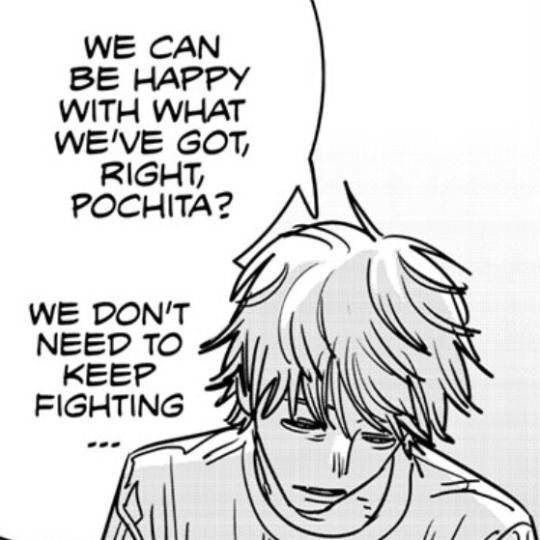
This makes Denji realistic, because individuals rarely have a coherent ethical system by which they evaluate their choices. People make the choices that they do because of who they are, whether those choices are coherent or not. Choices aren’t computations or evaluations, they are the endpoints of a story.
This is Fujimoto’s brand of existentialism, not unlike Kierkegaard’s, but with less freedom. Denji creates the meaning of his existence from what he sees around him — he decides his own dreams — but this doesn’t grant him the sublime freedom to take a leap of faith. Rather, it is an act of necessity, something that you cannot help but do. You need to dream to keep moving forward.
Ethics, then, is not a dispassionate evaluation, but an encounter between a person’s intrinsic drive for a better life and the reality of the world. Regardless of choices being right or wrong, people still do what they do for reasons rooted in the life they have lived. This is the reality of how choices are made, rather than an ideal designed for passing judgement.
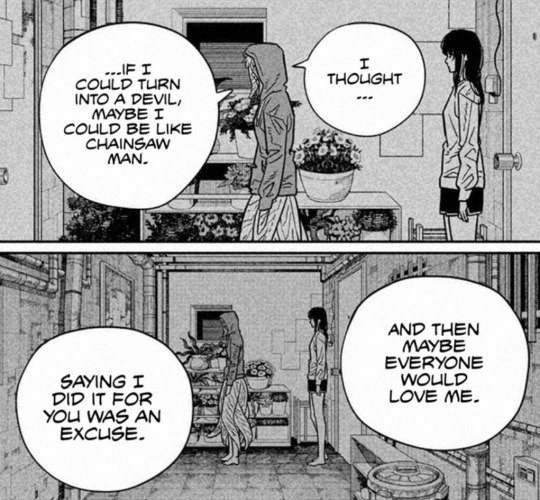
On the contrary, the villains in Chainsaw Man are exactly those people who believe that they can pass judgement. The Allies of Justice are not heroes who protect the weak, they are villains who use their moral code to justify selfish action. And that is the root of evil: they are dishonest with their selfish life.
Yuko is an example of this. Yuko wants to save Asa because she wants to be seen as a hero, like Chainsaw Man, but she justifies it by casting herself as an Ally of Justice, a protector of the weak, like Moonlight Mask. Unlike Moonlight Mask, she doesn’t follow some abstract code. Her inflated ego leads her to justify violence, and ultimately transforms her into a devil.

Asa, on the other hand, is genuinely selfish in her actions. She makes choices based on what she wants to be right, regardless of the outcome. She doesn’t hide her selfish intent behind a moral excuse; she is selfishly moral: she acts as she wants the world to be, rather than giving in to what it is.
This is closer to Kierkegaard, but again, there is no faith. Asa doesn’t have to believe the world is good. This is the selfish aspect. She decides what the good choice is based on her moral intuition, then tries to make that real, even if it is a risk. This is Fujimoto’s heroism: the bravery to be wrong.
This Justice, this heroism, is consistent but dependent. It’s not the same as relativism because Yuko was wrong. She wasn’t being honest with her dreams. She was selfish, but not living selfishly.
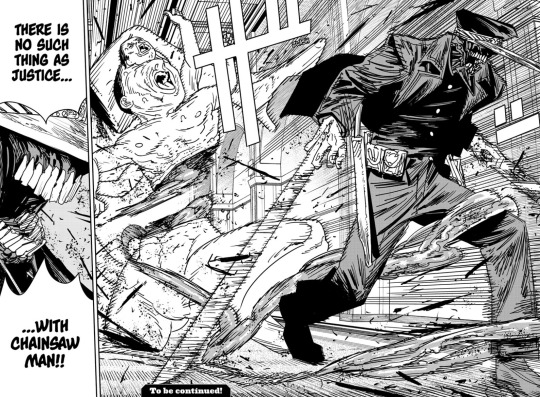
This is why there is no Justice with Chainsaw Man. Because what is right isn’t about an abstract Justice which you defend. The hero isn’t a faceless detective, stripped of his name, who appears from the shadows the save you from a similarly faceless evil. The hero is just a kid, just some girl, just a person who has lived a life which has led to a moment, and in that moment makes a choice, adds to their story.
Chainsaw Man isn’t a story with Justice, it is a story about Justice. A story about how Justice is created in the search for happiness. And right now, Denji has lost his drive. He has lost sight of who he wants to be — which is good to some degree, as he l still clings to sexual impulse — but has yet to discover what good he wants to create, what he wants to believe the world should be.
There is No Justice With Chainsaw Man
Yet.
#chainsaw man#denji#justice#analysis#tokusatsu#moonlight mask#Yuko#Asa#ethics#morality#existentialism
64 notes
·
View notes
Text
I think the more interesting read of Arlecchino is that the other Harbingers don’t like her because she (probably) killed one of them.
#genshin#arlecchino#i know people want her to be properly evil#but i think she resists a binary/evil distinction#because her actions are guided by an ethic of care#her concern isn’t justice#it’s whether or not the people of fontaine survive the flood#it’s the previous Knave lying to Freminet#it’s whether or not the children are crying#god i have to write a care ethics analysis of arlecchino when her quest drops
23 notes
·
View notes
Text
I love horror stories centered around hubris.
Sure, hopping in a death trap and taking a slow joyride to the soggy depths of hell is arguably the fucking stupidest series of life choices possible. And sure, the majority of these men spent decades hoarding wealth and said wealth made them feel invincible. They disturbed an antique mass gravesite for their own personal enjoyment. And yet, there's this sort of cognitive dissonance surrounding the conversation.
In a work of fiction, the plot would be perfectly set up for them to "have it coming." It's got all the tropes. A dangerous, spooky setting at the bottom of the ocean. Rich men with little regard for human life. Hubris, in their own arrogant assumption that enormous wealth gave them godlike invulnerability. Hubris again, underestimating the raw power of the ocean. Disrespecting the dead, whose ghosts have haunted the world for over a century in the form of a story we never stopped telling. Ghosts who were innocent victims of the same hubris: The Unsinkable's dire shortage of lifeboats and other emergency supplies. It's like it was written to be a story about bad men who get their comeuppance. It's irony layered in irony like a goddamn metaphor ratatouille.
But can anyone have that coming?
Who gets to decide what is justice and what is tragedy?
There is no author figure outside the extremely predictable consequences of their own actions. There's nobody on the other side of the plot typing out a heavy-handed morality tale. There's no intent to force the reader to decide between empathy and condemnation because this is the news and not a short story in literature class. The whole thing is built like a sick twin of some lost Ray Bradbury tale but it isn't.
And not only is it real, it's happening right now. I don't know how long an actual event needs to cook before it becomes modern mythos, but it sure as shit is longer than yesterday. Though some facts are lost to the water, the broad strokes of the sinking of the Titanic are largely known. The events in the sub are a complete mystery because Schrödinger's boxheads are still nowhere to be found.
Now, maybe analyzing the last moments of the missing-presumed-dead like a piece of literature is in poor taste. But I think the most chilling, the most compelling part of this whole shitshow, is how quickly someone can change from a person into a story. Both immortalized and already dead before they even knew they were doomed.
#this whole thing has me skittering across the ceiling like a spider#you could draw a two axis diagram of the responses#hope - hopeless#justice - tragedy#and the ethics of any sort of meta-analysis are up in the air until this shifts from news into history#BUT WHEN IS THAT SHIFT#titanic#oceangate#people keep comparing this to the migrant tragedy#there isn't the same ethical ambiguity there#it was fucked up and heartbreaking and should never have happened#there was no justice done there. it is a tragedy.#nobody can argue anyone on that boat deserved what happened.#anyone that tries to compare a choice made by a powerful person out of baldfaced hubris#and a “choice” made in tearful desperation by someone who has lost any power they might have once had to war#has fundamentally misunderstood both events
60 notes
·
View notes
Text
The Moral Complications of Questioning a Small Businesses' Prices.
I've been seeing this happen ALOT lately. People will comment on small business videos saying things like "$$$ for a NECKLACE?!! You're a scammer!!" (Except obviously with much worse grammar and some slurs). And honestly I find it extremely off-putting. On one hand I can understand that a small business -especially one run by a minor or young adult- might get their pricing wrong, but the things people fail to take into account are the time, money, resources, and effort that actually go into creating these products. Not only that, no one is making these people buy things from this business. If they're THAT pressed over a price, they should learn how to make it themselves (something I have done on MANY occasions). Also, if these SMALL BUSINESS prices genuinely upset you, maybe you should be assisting the protests to do with the actual cost of living crisis that's forcing these young entrepreneurs to overwork themselves just to earn a living wage. Seriously consider actually educating yourselves on these matters before bullying children online. And support small businesses!! (If you can, of course ;3).
#to be cringe is to be free#cost of living#small business#pricing#philosophy#ethics#small business owner#cyber bullying#protest#protest post#ethical analysis
2 notes
·
View notes
Text
Note: this does NOT have to be the sociologist/writer you AGREE with the most — obviously this is the #marxism website — but the one you personally found the most interesting or enjoyed writing about the most.
I was always the odd one out in my sociology classes because I ADORED the constructivism lens I just thought it was a really fun way to analyze different writings and films (I ended up in a lot of sociology classes that liked to assign like. Film reports? That’s how I learned I hate film-based classes having to watch a film for a grade is so much worse than reading a book for a grade)
Yet most of my professors and other classmates treated Durkheim as the “hard” intro writer and the constructivism lens as the “hard” lens to write for even though I always found it the easiest to universally apply (because it’s just like. Social symbolism? A thing present in all forms of media related even tangentially to culture or human experiences? How is this not the easiest lens to use for every sociological “use 1-X lenses to analyze this story/article” assignment ever?)
ALSO: NOT including an “other” category because I want to keep this focused on these three in particular since, at least in the US, they are more or less taught as the first three “specific” or “initial” lenses of sociological analysis (which is why Marx isn’t my favorite because I got real sick of having to read the first section of Das Kapital the start of every semester since he it was ALWAYS assigned as a “warm up” in EVERY FUCKING CLASS)
#sociology#social science#college#Karl Marx#Marxism#poll#polls#tumblr poll#social experiment#sociological imagination#max Weber#the Protestant ethic#the Protestant work ethic#Durkheim#Emile Durkheim#constructivism#constuctionialism#sociological analysis#Marxist theory
40 notes
·
View notes
Text
I had some mental illness about Chara from undertale and the song still alive from portal, I made these crappy notes for a friend. Anyways! I figured it might spark some interesting conversation or I might find someone with similar thoughts or ideas if I share them here so! Enjoy ^-^ (also sorry my writing sucks)

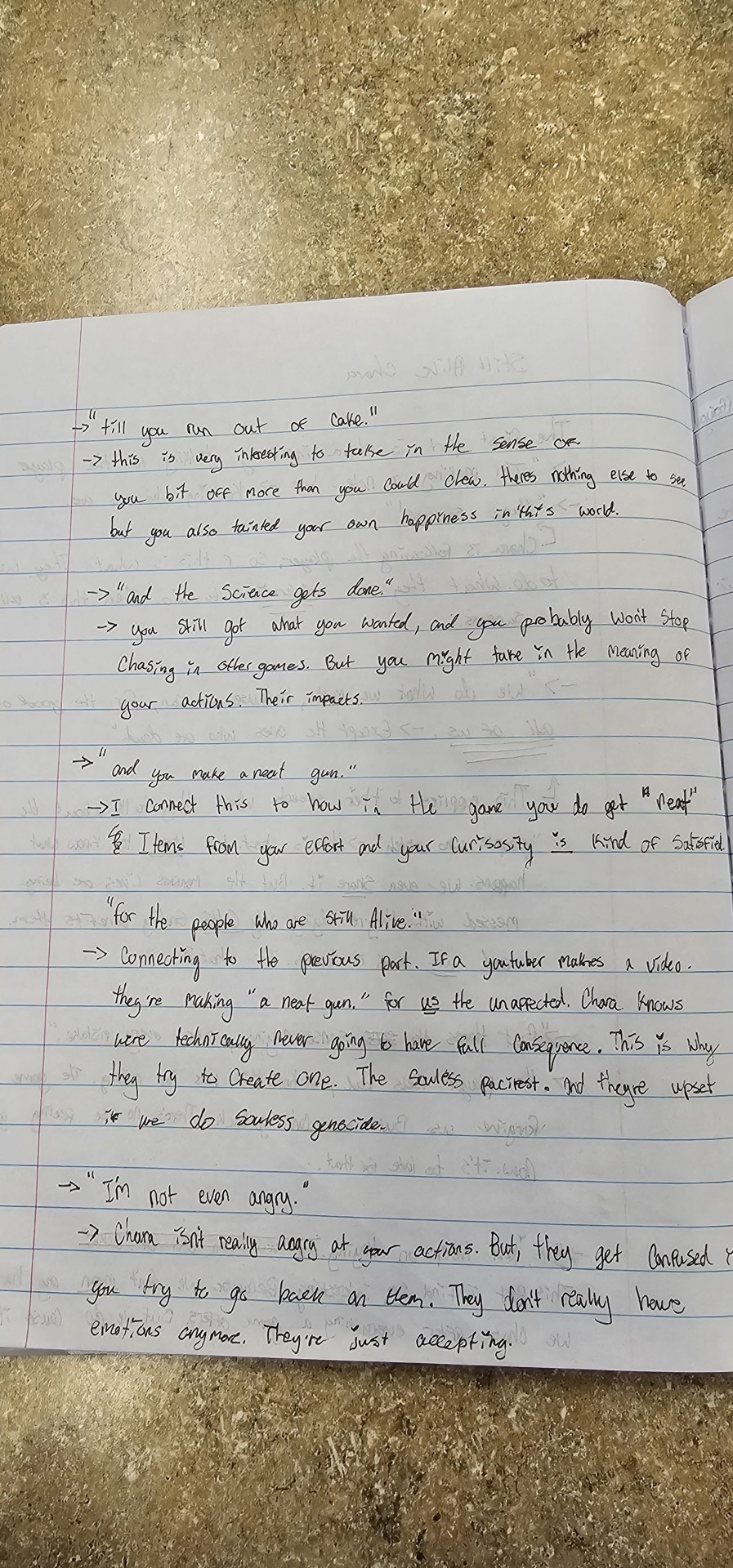

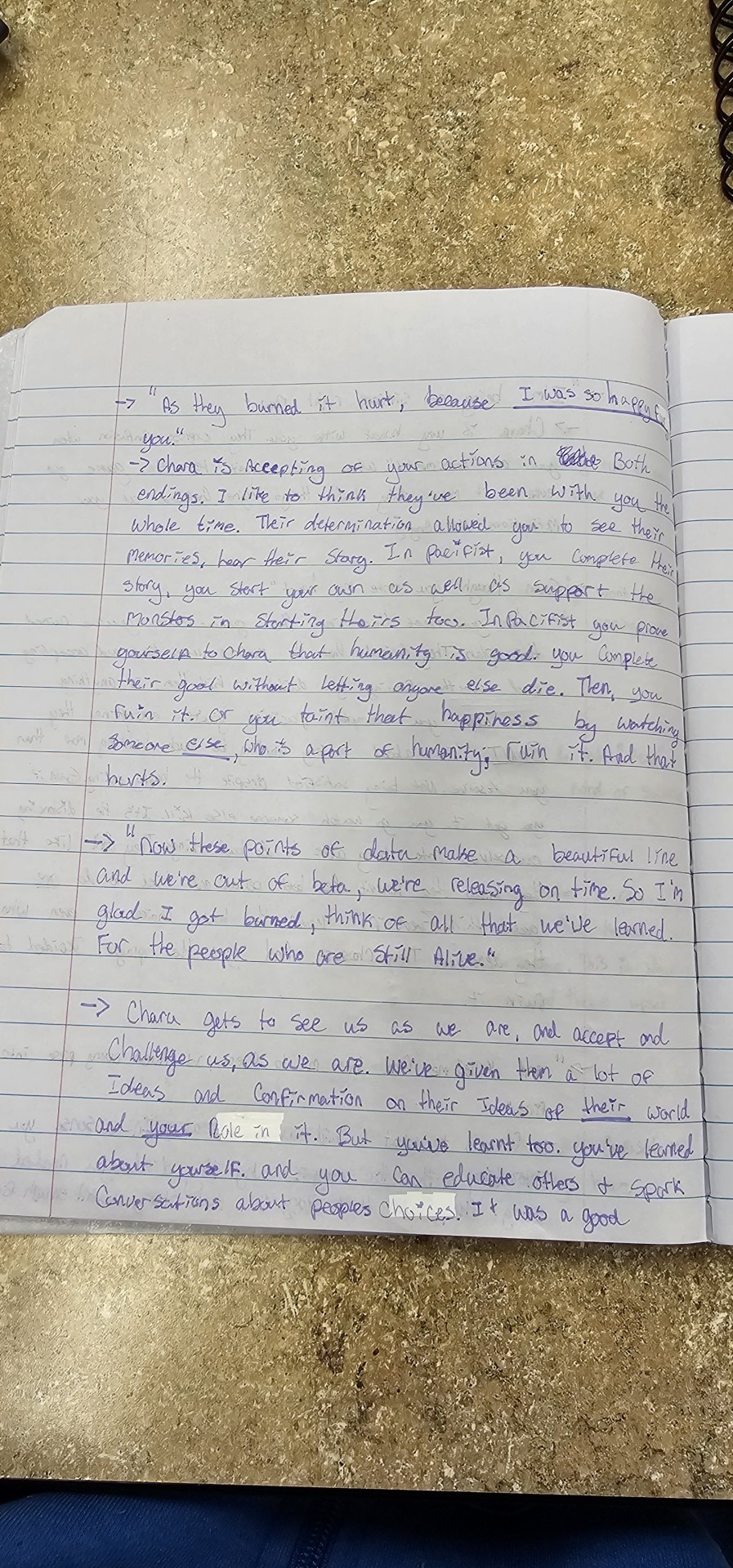

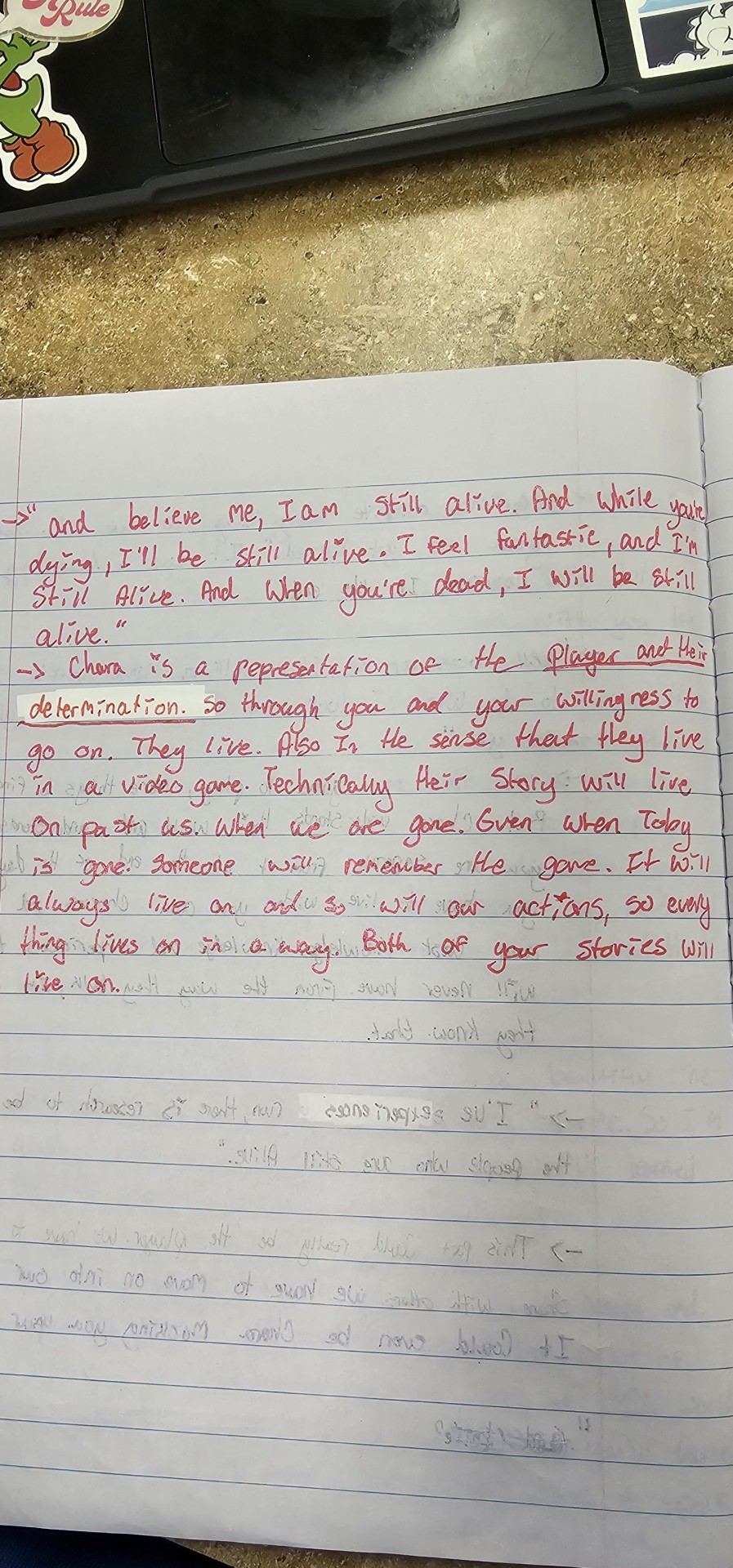
@radioroxx @glitchpunkz since I promised to share them with you guys <3
(Sorry they're a bit, messy haha)
#undertale#i love comparing music to characters#chara#chara undertale#portal#portal 2#morality and ethics#video game media#analysis#this is kinda bad but yknow#insane in class thought be upon ye!!
12 notes
·
View notes
Text
the western sydney work ethic, mental health, burnout, inequality and ableism
inspired by ashton irwin on artist friendly with joel madden and 17902 sustainable urban development at the university of technology sydney
I’ve teased the idea of writing this post for a while now, and now I’m sitting in my borrowed bed in Sydney with the graphs and maps from my course still at the back of my eyelids and still processing the Vibes of catching up with my childhood friends and wondering if it’s too early to go to bed if the sun’s still up—it’s time to let it out. Because I found a bunch of seemingly unrelated things and put them together in a way that helped me process my upbringing and the way it’s positioned me as I go through life even now.
For background of this post, the Greater Sydney metropolis has a very stark rich/poor divide, where a large strip from the west going to the south of the city have been left behind in a variety of ways. In my uni course I see the maps on income, education level, job overqualification, crime, violence… they’re nice and set out, and they validate what I already intuitively knew—just like everyone who grew up in the area I’m going to refer to vaguely as Western Sydney. These graphs put words to something I’ve lived when I was too young to process it, something I hear the impacts of in 5 seconds of summer’s songs like I’ve never seen in any other art ever.
I know many people relate too and I don’t want to say you have to be from Western Sydney to get it. There are plenty of other places with similar trends, but this strip of suburbs, half a city, is where I grew up and the case study I’m going to use for the phenomenon I’m going to describe in this post.
Having spent the last decade and a bit in a more conservative, more sheltered area of suburban Brisbane, where people take it slow and at least attempt to have fun without getting completely wasted; where people have high expectations for their lives and livelihoods they never quite meet and where they’re the kind of emotionally aware that you hear all about how stressful that experience is: this was the backdrop of my teens and young adult years to this point. It’s where I learned about mental health and neurodivergence and ableism and where I really explored what faith and spirituality is to me. It’s where I never quite felt comfortable when people were too polite, where I poured all the belief they had in me as a gifted kid plonked into that environment I wasn’t native to into the delusion that I could deconstruct the unequal education system of their own creation if I only worked harder than anyone had ever worked before. Then they would finally listen. It’s where I tried and tried to get help for my mental health and wasn’t listened to either, not when I presented so well and was simply unable to unmask until I was unable to mask at all. Where the slightest bit of hope caused me to forget everything that was hurting me, making it a struggle to work through even to this day. where I wondered if I was some superhuman for the fact that I can work my ass off without even realising it’s hard work, a smile on my face and arms open for connection as always (the mark of health they say) while being desperately unwell, hurting, thinking I had it good compared to some of the people I’d see crumple under the pressure, I should be kind to them (not understanding why I found them so, so relatable).
I am not a freak of nature, or superhuman, though I am neurodivergent and twice-exceptional. I am the product of my upbringing and my ancestors. I carry generations of culture from hectares of foreign lands my ancestors made their homes on (ethically questionably in some cases I do acknowledge) and became part of the ecosystem of. It is, like most difference, a gift and a curse. Something that makes certain measures of ableism not apply to me, but creates others in their place. I’ll get into this more later.
in the strip of suburbs united by demographics we call Western Sydney, farmers from the notoriously difficult land of the Murray-Darling and immigrants from everywhere on the planet, some Indigenous but few Indigenous to Australia, make up classrooms, neighbourhoods, workplaces. Think I Am Australian by The Seekers, but just the verses, as a snapshot of some of the stories representative of the people. Interwoven in the landscape. We celebrated Harmony Day on the 21st of March in my primary school. Everyone had a different cultural background. We heard different languages spoken on the street. There were stereotypes. There were scared people trying to find their tribe, build a life in Australia, away from the larger scale farms, get their kids a good education to do a trade or go to university. Fear and angst and hurt coexisting with an appreciation of the juxtaposition of others you’d never head admitted out loud. But the second verse of the Australian national anthem was written just for us, or might as well have been. Beneath our radiant southern cross, we’ll toil with hearts and hands… google the lyrics, you’ll get it, you’ll see why I wish the rest of Australia did too: for those who’ve come across the seas, we’ve boundless plains to share, with courage let us all combine to advance Australia fair…
No one with the power to acknowledge this I interact with these days remembers the second verse. Except 5 Seconds Of Summer, in their ridiculous little promo videos, who I’d bet the rubble that’s left of my parents’ old house as the new owners turn it into a mansion because Gentrification, have no idea of what a meaningful gesture that is.
I can feel the wounds of being torn from the good parts of that experience closing over. And so it’s time to give the often forgotten stories on an often forgotten piece of land that made me and also these four wonderful humans who we are today, the credit it deserves. Start by telling our stories.
One thing I love about Artist Friendly is it cuts straight to it. Joel Madden is just incredible like that—in a world coming out of the 2010s pop decade of dancing while the room is on fire (bloodhound, 5sos) put your rose coloured glasses on and party on (Katy Perry’s chained to the rhythm) (these I would consider more analytical quotes of the era, one whose vibe was ‘forget all the pain in the world, let’s party and sing about how horny we are’ which for all my cynicism I did find fun)—he kept up his punk edge, kept investing in new musicians, searching for and investing in what’s real. He also really loves Australia, and when you put our underdog-supporting attitude next to Good Charlotte’s songs you understand why. Anyway, the episode pretty much opens by him asking Ashton about his background, and relating from the perspective of working-class-emotionally-unavailable/immature-parents-who-showed-their-love-through-provision-and-really-did-try-to-be-there-but-had-none-of-the-resources. I like the positive take. It’s high time we stop being classist and ableist towards the people who’ve met our needs as much as they were able, but it still wasn’t enough. Who taught us how to take opportunities, work to prove our worth, and through it all couldn’t even afford therapy.
I used to think my family was rich because we lived in Australia and my parents had gone to university. Never mind the fact that I was born when they were barely older than I am now. Never mind the mould in the walls or sneaky Tuesday night washing of the school uniforms in the summer when we got sweaty and there weren’t any spares or the mismatched bargain bin clothes we wore or the bedroom I shared with my sisters. I knew the people I compared us to. And now I do really believe if I’d grown up a bit less frugal or even a few k’s out of the area I did I wouldn’t be who I am. I wouldn’t have the perspectives I have, nor would this podcast episode have me feeling so seen. Like, yes I lived a bit further into the city than these guys, close to the train line without any farmland where the house values shot up seemingly overnight and meant the area I grew up in is experiencing a very weird disparity as two cities collide within it today. But we grew up in the same era in western sydney, we grew up loved and knowing that was a privilege and we grew up knowing from a very young age we had to spend our whole lives working hard if we wanted life to be manageable and we better be polite and better not ask for too much.
yet we also grew up with hurt. From the trauma we inherited from our caregivers as we encountered the attitudes and fears with which they faces the world. From what we saw our peers go through much too young to be able to draw boundaries with the empathy we felt too much of and understood nothing of. From broken family relationships that were all too common. From religion that hurting people used to cause or at least stagnate hurt instead of healing.
when I was burning out and struggling as an unrecognised neurodivergent I used to wonder why my father would place such value on the Protestant work ethic when Jesus died exactly so we wouldn’t have to strive. And I acknowledge that the PWE is harmful to many disabled folk or literally anyone who has experienced the demands of life and had their stress invalidated for it. Including myself. But never having the expectation of a life of ease and luxury? I do appreciate that. It’s given me a whole different metric for how I view life, one none of my friends except those who are from those years of my life understand. No one in Brisbane or my online international friends seem to get it. But I’m sure when you see yourself in this post, that some of you will (we might be the largely unheard minority but I’m sure we exist. Joel Madden is proof of that). It’s given me a differently calibrated emotional pain scale in many ways. Different standards for when the warning lights come on (and I’m very perceptive of angst and disappointment and always see them in others to be worse than they are because of it). And when I look at everything this band has accomplished, I know it’s the same for them.
I have spent a lot of time these last years advocating for neurodivergent acceptance. I’ve done so in a way that made sense of the decade previous, of existing in a world of inequality I’ve always been so sensitive to and of expectations that I took on as opportunities (because what else have I been trained to do)? And yet so much of it is about funding and resources. And when there isn’t that? You make room for my favourite thing ever: grassroots, unofficial but beautifully organic loving neurodivergent affirmation. Plenty of rural folks, my grandparents included, hate labels, prefer focusing on strengths and equipping young people based on those than accommodating difficulties. They’re often seen as conservative, bigoted, ableist, and some of them are. But they bring with them an important lesson about how to live with the realities of the economy that they struggle in too, too much to support someone else. They don’t have the same impossible expectations of their neurodivergent progeny and protegees and community members that many who hold in their heads an idea of perfection they hope to bring to their families do (the kind of things sometimes only a diagnosis can free someone from, and nothing from the memory and shame of) and that—that is an important attitude for all of us to have.
Some people are unconventionally neurodivergent affirming while knowing none of the terms, or maybe trying to hold off using them because of the same economic and confidence reasons I’ve tried to unpack. Some rely on simple kindnesses and explanations that centre around possibility, and go nowhere near deficit. Some people know intuitively or through hard life lessons themselves (usually the latter) the value of stripping all but essentials from the functionality of everyday life. Not making it any harder than it is.
Of course you can drum on the tables in math class. My son is a musician, I get how it is.
Liz Hemmings is the only valid neurodivergence parent—I’ll say no more, it is how it is
Sometimes when we advocate for things we have to be aware that the way the dominant in-power often wealthy culture has figured it out isn’t always the best way to do things. Environmentalism is a prime example of this. This is why we need brown environmentalism and to decolonise and listen to our Indigenous stewards and share power.
You can take a lot of lessons from a place that’s as culturally diverse as Western Sydney. And you can see how a work ethic is facilitated, rather than gatekept. You can see why Ash, when asked by Joel if he’s scared of every getting back to that life (ref to poverty) his attitude is actually one of gratitude and almost reverence for the place that shaped him, that brought the band together and everything that came from that point forwards. That shaped their attitude and birthed the grit that got them through being on tour with one direction and I don’t think he said it but in Ash’s case I bet the empathy he has for the fans and the way he just wants to connect and create a fun experience but also one where we’re deeply seen by moving songs is because he knows what it’s like for so many people. You can’t not if you grew up like we did. You can see why Luke at any chance will say ‘we’re from Sydney Australia’. It has a way of sticking to you, the rich culture that’s a patchwork of orphaned cultures, the way everyday life is like one of those adventures you emerge from with strong bonds usually only found in fantasy novels. You can see that the band is proof that those bonds exist in real life.
after a decade and a bit pretending I know what leisure is and how to have fun without Bad Angst I’m glad that this proof is still in my life. I’ve still got close friends from primary school and few can boast that (we might not quite be Calum and Michael in that regard, but they still have other friends from primary who they’ve kept in touch with despite geographical separation as I have).
Now I’ve acknowledged this and traced the strings that are much easier to see when my own life is mirrored in a podcast episode, maybe I can find the good among the cultural dysphoria in the circles I do have in Brisbane, and do value still for what they are even if they’re not quite the same. Now that I can see how a world of too many opportunities and not enough freedom can burn someone out who came from this background, with the type of brain that flourishes on being a latchkey kid and sketchy hangouts with deep conversations and questionable substances but crumples under expectation and too much choice and politeness, I can put my life back together in a way that validates who I am and where I come from, rather than what those around me tell me should be good for me.
as, I can tell by this interview, these guys have. I want to be able to talk about suffering without people acting like it shouldn’t be something we can comfortably say out loud, as Ashton does here and through music. My art isn’t quite the same, but the purpose behind it is so, so similar. I relate a lot to the importance he places on spirituality, even if I’ve tried to do something with Christianity that it, in the mainstream at least, isn’t built for and probably can only partially do on its own. Maybe the epitome of humility is being able to learn from other religions and see them as gifts from God even as, and I include Christianity here as well, anything can be dangerous if used in a way that it wasn’t meant for: anything with power to heal has power or hurt too. I’ve got so much respect for how Ash does it. I think this episode really cemented for me that, and I feel like it’s something we as a fandom don’t talk about enough because of their characterisation (and fair enough, if you’re famous you don’t want people dissecting every part of you, and I’m not going to do that just give a generalised compliment): these guys are so incredibly resilient and intelligent and invested in creating healing and they’re really fucking good at it. They might present themselves as goofs with one braincell that create bops and fan over other celebrities as if they themselves aren’t famous too, but so much of that is humility and them baring themselves in ways that are sustainable and really emotionally mature (for the most part) to be relatable to us as fans and invest in making that connection genuine. They’re not pretending, because they understand how it is to be human.
and you don’t get there by being some sort of Untouchable Philosophical Genius Figure. you get there because you’ve lived in community and you’ve survived hard things because of other people who’ve done similar and created authentic art too. You get there often because you have to: because putting on a fake show and doing stuff for likes and popularity was never going to work and will only screw you up in the long run and you’re worldly enough to see that from a young age and learn from your own intuition and empathy and experiences. You get there because you lived your whole life being resourceful and being street smart and doing what it takes to make good decisions and invest in yourself (who else do you have who’s worth more than that) and your future. Doing what it takes to make sure you’re alive to learn how to do better at things you’re behind in that might keep food on the table in the future, because there’s none of that oh-it-won’t-happen-to-me attitude. That part is very sustainable which I love. I also really really relate to it and have found it something I would get complimented on when I was younger, too young to be so mature. But I never attributed it to myself. I knew somehow, abstractly, I was disabled and nearing my limit and everything I do I did so I could survive. It’s the western Sydney work ethic.
and yet this often beautiful phenomenon has its ugly side. If you know you’re neurodivergent even without the words—more often than not the only people you see who you relate to are those who didn’t make it, who fell off the horse of functionality and into things like addiction and other things that exacerbate the inability to empower yourself. You figure that when you’re honest with yourself you’ll be dead by 25. Sometimes you give up on trying to prevent that and wonder if it’s even worth it to attempt to keep going: is your life really worth that effort?? What I’ve described is a combination of the experiences of many people I know, aspects of it are mine, and aspects mirror things I know these guys have mentioned about themselves (I’m going to leave it at that vague level of detail). You wonder why people believe in you, is it only because any other option is unmentionable? But what if you let them down like you know (fear) you will? And burnout is the epitome of this: the need to let go of trying. And without a decent amount of privilege it’s impossible to return from.
I’ve been there and scrounged at straws of privilege I do have, pretending I’m doing my job to the level that others expect while letting go of every expectation I have on myself. Still problem solving outside every box on how to get back on my feet because I know nothing else, radically accepting that I might not and whittling down all my needs in life to the most essential, that I might still survive even at my limited and diminishing capacity. While always relating to those our society sees as failures. I’ve borrowed from other cultures that aren’t my own to have a stubborn sense of worth while trying to keep afloat in a society and economy that says it’s conditional. My spirituality comes in here, as do my problem-solving skills: again, maybe this culture fears burnout more than anything, but maybe it has half a toolkit on how to get out of it. Only half. I have to pair it with what I learn from others too.
and even through that, I’m immensely privileged to have savant skills and a generally able body. Just like when you make it big as a musician you’re privileged by that. Against a backdrop of I’m-nothing-special. I’ve always struggled with questions of my felt worth, because I’m so conscious of my privilege and ability that sometimes I get the two muddled (though I know my ability doesn’t define my worth in things I do poorly at, and my persistence technically doesn’t either but I’ll be damned if I don’t try and try and actually find doing badly more validating of how I see myself than when I do well, so I chase it again and again, my dad is the same, it’s what makes us so adventurous). I understand the consciousness of things that are going well not lasting, and pouring creativity for new ventures into things like selling candles. Instead of letting achievements make me believe I’m someone more important than I am, using them as ways of giving myself space to do whatever’s next, dial off the pressure a little bit.
I understand appreciating others’ sensitivity and the social capital they bring everywhere rather than their material wealth or achievement and when Ash praised Calum for that and said it made him look bad I felt that. Both the experience of being that counter-cultural person who doesn’t give a shit about money but values connection so, so much more (and from all I’ve written, you can see why, can’t you) to still never being able to be as good a person as I see the need for in the world.
I understand missing family and constantly grieving that, as I weigh up the city of my childhood with the friends and culture I love versus the city of my youth with my feathered family who are my children and who I hate to miss birthdays of and the like, same goes for my sisters and parents and grandparents, the way Ashton, the only band member with younger siblings, hates missing all their milestones too. I feel privileged that Brisbane and Sydney are so close to each other and nothing in my life is as far as Los Angeles. I understand the nostalgia for Sydney. This whole post is proof of it.
I understand the unbreakable bonds between people who make this kind of art together. I understand putting disagreements on the back burner and realising the connection through writing is so much bigger and the connection can overcome whatever is going wrong. Heck, I feel privileged to understand and relate to how such brilliant brains work (nature: neurodivergence I won’t go any further into as well as nurture) as well as the environment that made them what they are.
all my life I’ve longed for that kind of community and connection I’ve seen largely in fiction, sometimes between people in real life. And I think having written this analysis (it’s taken me til my bedtime or later) I do have all the ingredients there. All the ability to make it, both in the practical way I relate to and am there for my friends and whatever I do in my silver bridges tag. In the neighbourhoods I eventually design that foster communities with all the good parts I’ve described but without the inequality and minimal poverty and hurt and violence. To everyone who’s shown me these things in myself that are so worth working for and I know I’m not savantly immediately good at, I am so so incredibly grateful. the city as a whole. My family and friends. The celebrities I grew up nearby and those who invest in people like them. People like me. May I keep investing in people: people like you. because what is humility but knowing there’s always something to learn, and what will bring all of us forward but learning it and putting it into practice in love and empathy that drives a grit that no amount of striving for striving’s sake can manufacture?
#western sydney#western sydney work ethic#neurodivergence#burnout#personal mental health tag#ashton irwin#artist friendly interview#5 seconds of summer#calum hood#luke hemmings#michael clifford#5sos#community#urban design#growing up poor#I did a big analysis and I will do this again#5sos5 city#silver bridges#neurodivergent liberation
20 notes
·
View notes
Text
sorry to harp on this but i think long video essays have become this thing that people decide that they don't like personally, and like that's alright, but for some reason they have to justify that dislike by making it a moral discussion rather than something that just comes down to preference and not all of those videos being well made. like you can't just say "i don't like quinton reviews or hbomberguy cause their vids are too long and that's just not for me" you gotta say "quinton reviews and hbomberguy are DISGUSTING people for forcing their audience to watch HALF ASSED CONTENT and oh they just want your MONEY and they're not ARTISTS they don't CARE about you and they're scammers and-"
#like one thing ill agree on is that these would do well with transcripts if people want to get in on them but dont want to watch#which i totally agree on. like i dont like audiobooks or ebooks i prefer to read physical copies cause i process them better#but you dont see me waging war on audiobooks cause i have a hard time processing spoken words with no visual over written ones#because thats a me thing and its the opposite for plenty of people#sorry actually we have to cancel every podcast ever made because they have no visuals and i cant listen for that long#im passionate abt this cause people will harass these creators and call them disgusting freaks with no talent or substance#and like. its super uncalled for??? like their worst crime is that some of the analysis feels unnecessary#you cant even say quinton reviews is just summary either bc he goes into merch and the climate around the shows#idk like. you dont need an ethical reason to not like something. you can just not like something and leave it at that#echoed voice
16 notes
·
View notes
Text
Censorship: Philosophical Thought and Modern Examples
"If any opinion is compelled to silence, that opinion may, for aught we can certainly know, be true. To deny this is to assume our infallibility." John Stuart Mill (On Liberty, Page 50).
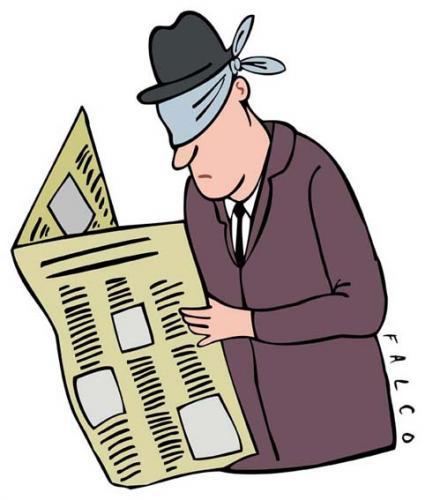
View On WordPress
#meerawrites#wordpress#anti censorship#on censorship#anti purity culture#analysis#critical thinking#philosophy#ethics#history#media#media analysis#media critic#media criticism#media critique#lgbtq+#queer#queer history#the hayes code#long form
16 notes
·
View notes
Text
Watching Stampede with my family made me realize how genuinely insane I have turned thanks to it
Like wow the actual physical EFFORT it took me to not randomly start explaining the composition of a scene, the color choice, the framing, the voice directing and the choreographies of certain scenes, as well as some of the lore behind it I should not explain because spoilers.
No, sorry. I lied on my résumé . I can’t like anything a normal amount. I’ve liked this for less than 4 months and I’m very deep into the trenches. And it will unfortunately become everyone else’s problem as well, because this one will stick around for a long time.
#being a lil mentally ill again guys#that’s right. finally managed to make the third rewatch with my binge watcher family in one night#I call it having fun at the expense of my mental integrity#to be fair Trigun is *gestures the air* right there for me to delve into deep analysis for no real reason#other than I’m obsessed with media that explores morally and ethically challenging topics#and the cool ass designs and badass weapons and super great characters#and I mean Trigun is just made to be loved tbh head full or head empty is so enjoyable either way and I think that’s a great charm it has#though at one point itll force you to THINK and I LOVE THAT#I want to scream with someone about Trigun and I do with my friends but it’s not the same when they haven’t watched it yet#and since I’m that.one.friend that looks to much into it because HAHA STORY CREATOR BUT#yeah. I want to talk about Trigun so bad…it’s…it’s a little embarrassing. but I obviously don’t fucking care the enough#because if I did that one person I didn’t know wouldn’t have said the ‘ah the Trigun girl’#somehow I became a synonymous to it. and I couldn’t be prouder.#trigun#trigun stampede#vash the stampede#lenssi rambles#trigun maximum#in my defense. I have adhd. which doesn’t really make up for much but at least it explains some extent of it
45 notes
·
View notes
Text



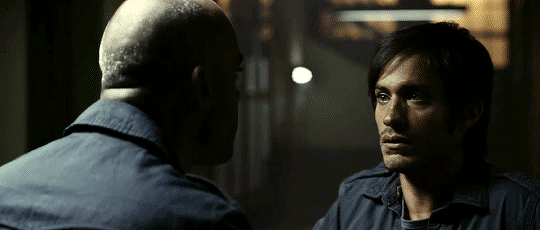



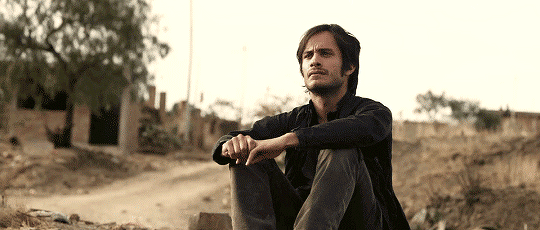
Gael García Bernal in También la lluvia (2010, dir. Icíar Bollaín)
(these gifs also feature Luis Tosar and the back of Cassandra Ciangherotti's head)
(and somehow manage to not feature Juan Carlos Aduviri because he and Gael are rarely in frame together)
#gael garcía bernal#también la lluvia#ggb filmography gifs#gael garcia bernal#this is luis tosar (and juan carlos aduviri)'s film really (although gael has lots of screen time and second billing)#just in terms of who gets the biggest character arcs#excellent supporting cast#all the characters are fully rounded people and feel very plausible as a group working together with established relationships#it's really good (note my incisive critical analysis there)#touches on racism / colonialism / what narratives survive in history / impact of imf and world bank / employment relations and ethics#filmmaking / creative obsession / idealism vs. pragmatism vs. actual human relationships#plus water rights and grassroots protests obviously#there is an interesting interview on youtube with icíar bollaín#obviously when you're making a film that deals with the ethics of filmmaking there are certain expectations#also the very first version of the screenplay years earlier was for the film that they are shooting within this film#and then the stuff about bolivia and about shooting the film got added later in subsequent iterations of the script#side note i love how the film they are making plays out in sebastián's head when he's reading the script or shooting individual setups#of course this took $5.8 million at the box office while letters to juliet took $80 million#no one ever said life was fair#not that i'm still bitter about letters to juliet#(i am totally still bitter about letters to juliet)
7 notes
·
View notes